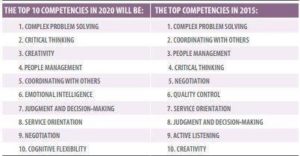 This week Bell “Lets Talk” Campaign for Mental Heath has encouraged us to bring the conversation about mental health in the workplace forward. In our experience as the employment service provider, we have many conversations with job seekers and workers about how mental health concerns are treated in the workplace. It is a concerning picture since many Employers do not know how to deal with mental health issues as they arise and treat them as performance issues only. For the employee, coping with a mental health issue is challenging and many people are working very hard to overcome and contribute to workplaces in a meaningful way. The frustration and challenge comes when these two approaches collide. Laws get broken, training investments are lost, and workers are marginalized. Accommodating workers requires kindness above all and the skills and knowledge to implement legal policies.
This week Bell “Lets Talk” Campaign for Mental Heath has encouraged us to bring the conversation about mental health in the workplace forward. In our experience as the employment service provider, we have many conversations with job seekers and workers about how mental health concerns are treated in the workplace. It is a concerning picture since many Employers do not know how to deal with mental health issues as they arise and treat them as performance issues only. For the employee, coping with a mental health issue is challenging and many people are working very hard to overcome and contribute to workplaces in a meaningful way. The frustration and challenge comes when these two approaches collide. Laws get broken, training investments are lost, and workers are marginalized. Accommodating workers requires kindness above all and the skills and knowledge to implement legal policies.
To be candid and in the interest of education, where we believe lies the power for change, we would like to provide some resources on the rights of employees and the duty of the Employer.
These rights are laid out in the Human Rights laws of Canada and BC. ” The BC Human Rights Code recognizes that all persons are equal in dignity, rights and responsibilities, regardless of race, colour, ancestry, place of origin, age, sex, physical or mental disability, sexual orientation, religion, marital or family status, political belief and criminal convictions unrelated to the employment”.
There is some special language called the ‘Duty to Accommodate’ which is a legal requirement arising out of human rights legislation and case law in Canada. Although “duty to accommodate” is not found in the BC Human Rights Code, a series of Supreme Court of Canada decisions confirm the duty exists and applies to all provincially regulated employers. Where a barrier exists, or a policy or practice has adverse consequences on an individual in a protected group, the law says that the employer should reasonably accommodate that individual’s difference provided they can do so, without incurring undue hardship, or without sacrificing a bona fide or good faith requirement of the job.
If you are a worker, you need to have a conversation with your Employer if you are seeking an accommodation. Here are some guidelines
- Where possible, advise or inform your employer of your need for an accommodation;
- Provide support and assistance in facilitating the process by providing sufficient information as to
- why the accommodation is required (a religious requirement, a physical or mental disability, or because of pregnancy or family status);
- support your request by providing evidence and / or information (ie medical or doctors reports that speak to limitations / restrictions or information that explains specific religious requirements);
- make suggestions that would work for you (ie. a specific adaptive software or hardware devise, extra sick days to allow for increased illness during pregnancy, etc.); and
- how long the accommodation is required.
- Generally, you are only obligated to discuss your requirements with management although you should cooperate with experts whose assistance may be required;
- Allow a reasonable amount of time for your employer to reply or respond to your request;
- Always participate and cooperate in efforts to make the accommodation work;
- Be flexible. Reasonable accommodation may mean something less than a perfect solution; be prepared to consider retraining or relocating in order to take on different job related duties;
- If your requirements change, make sure you let management know;
- If a solution is offered and you accept it, get it in writing;
- If the process loses momentum, provide additional information that may help re-activate it;
- If your employer claims they are unable to fulfill your request, ask for written details that explain the decision (credit to BC Human Rights Clinic)
Bell has started the conversation. This annual campaign helps us keep the conversation going. All in a days work for us at the Skills Centre.
Bell Let’s Talk Workplace Standards





 This week Bell “Lets Talk” Campaign for Mental Heath has encouraged us to bring the conversation about mental health in the workplace forward. In our experience as the employment service provider, we have many conversations with job seekers and workers about how mental health concerns are treated in the workplace. It is a concerning picture since many Employers do not know how to deal with mental health issues as they arise and treat them as performance issues only. For the employee, coping with a mental health issue is challenging and many people are working very hard to overcome and contribute to workplaces in a meaningful way. The frustration and challenge comes when these two approaches collide. Laws get broken, training investments are lost, and workers are marginalized. Accommodating workers requires kindness above all and the skills and knowledge to implement legal policies.
This week Bell “Lets Talk” Campaign for Mental Heath has encouraged us to bring the conversation about mental health in the workplace forward. In our experience as the employment service provider, we have many conversations with job seekers and workers about how mental health concerns are treated in the workplace. It is a concerning picture since many Employers do not know how to deal with mental health issues as they arise and treat them as performance issues only. For the employee, coping with a mental health issue is challenging and many people are working very hard to overcome and contribute to workplaces in a meaningful way. The frustration and challenge comes when these two approaches collide. Laws get broken, training investments are lost, and workers are marginalized. Accommodating workers requires kindness above all and the skills and knowledge to implement legal policies.